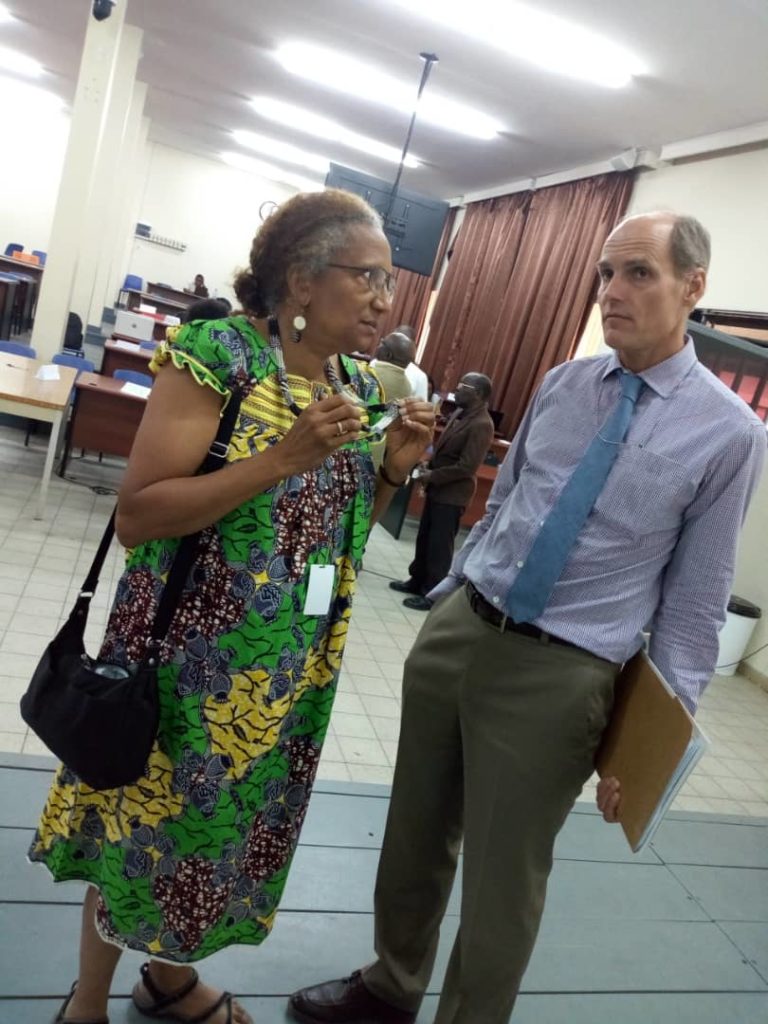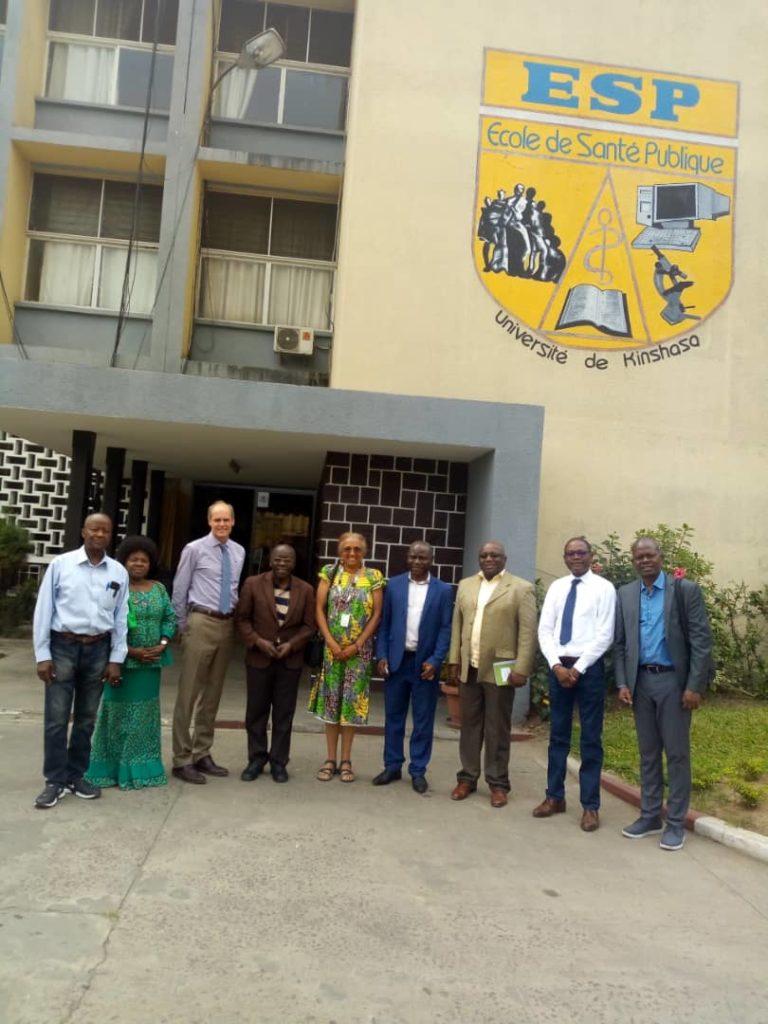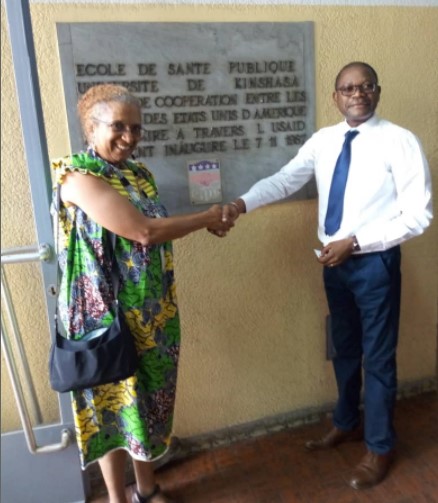The KSPH have hosted an important guess from USAID/Washington, Ms Monique Wubbernhorst, who is the Deputy Assistant Administrator, Global Health) and the Mr Christopher Barrett the USAID health office Director in DRC.
PURPOSE
To visit the DRC’s University of Kinshasa School of Public Health (KSPH) and learn how the school is working to improve resource management and the administration of health services by providing training and education to Congolese health professionals.
BACKGROUND
The US government through USAID has supported the KSPH, which is a branch of the Faculty of Medicine of the University of Kinshasa, since its inception more than 30 years ago. The project that led to the creation of the KSPH dates back to August 28, 1984 when Tulane University coordinated technical support from a consortium of American universities. The KSPH began offering training activities during the academic year 1986-1987. Since its establishment, the KSPH has been working closely with the health zones, provinces, and national Ministry of Health programs, and a long history of cooperation with donors including Centers for Disease Control and Prevention, American Institutes of Health, Global Fund, World Bank, European Union and the African Development Bank. Since 2014, as part of the implementation of its new development strategy (2015-2019), USAID/DRC has been working to strengthen the School’s financial management capacity to enable it to eventually receive direct funding from the US government.
KEY ACTIVITIES
-
- US Government has worked to have a large number of Congolese teachers and develop curricula adapted to the country’s major public health problems. The contents of these curricula take into account the evolution of science and are inspired by the best in the field of public health. Today, of the 25 Congolese teachers working full time at ESPK, 12 were trained in the United States with our support and among them four women.
RESULTS
-
-
- PREDICT diagnosed the first human samples from Ebola cases in Boende, Tshuapa province in 2014 which allowed the DRC Government to officially declare the 2014 Ebola outbreak and set up an outbreak response plan within two weeks.
-
Beyond the significant support received from the US government, KPSF needs to mobilize more resources, also counting on the support of the DRC government. The quality of the education offered needs easy access to international literature and accreditation to be in tune with other major schools.
The ESPK is destined for a bright future provided it increases its autonomy of resources and improves the coordination of its management. An extra effort is recommended to cope with the ever-increasing needs of candidates by using new information and communication technologies, including by organizing distance learning courses.


